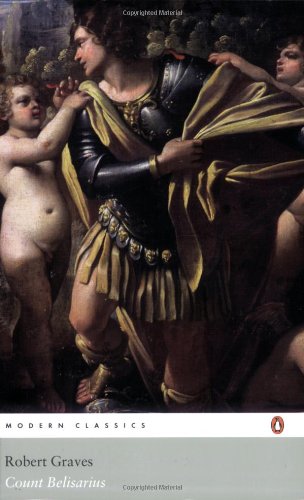Count Belisarius
Originally published in 1936, Count Belisarius has not basked in the same limelight as Robert Graves’s two earlier masterpieces set in the early Roman Empire. Instead, in Count Belisarius the focus shifts east from Rome to Constantinople. The cast is full and complex but essentially can be summarised as a foursome: the Emperor Justinian and his wife, Theodora, whose closest friend, Antonina, marries Justinian’s general, Belisarius.
The story is narrated by a eunuch, Eugenius, a devoted slave in Antonina’s household. The scope of the book is massive – encompassing religious controversy and cultural developments as well as military history – yet, throughout, Graves succeeds in blending historical details with the development of his main characters. For anyone who has seen the beautiful mosaic of Justinian and Theodora in Ravenna, their characters here come as a surprise: for all its ideals and renewed hope, the Eastern Roman Empire was as corrupt as its Western predecessor. Belisarius alone rises above this as a man of principle and integrity and a renowned military leader. He leads Justinian’s army to victory in the campaigns against Persia, Carthage, Sicily and Northern Italy, often against astonishing odds and with little backing.
The new introduction by John Julius Norwich is a bonus. Perhaps a film or TV series of this extraordinary man is overdue.










